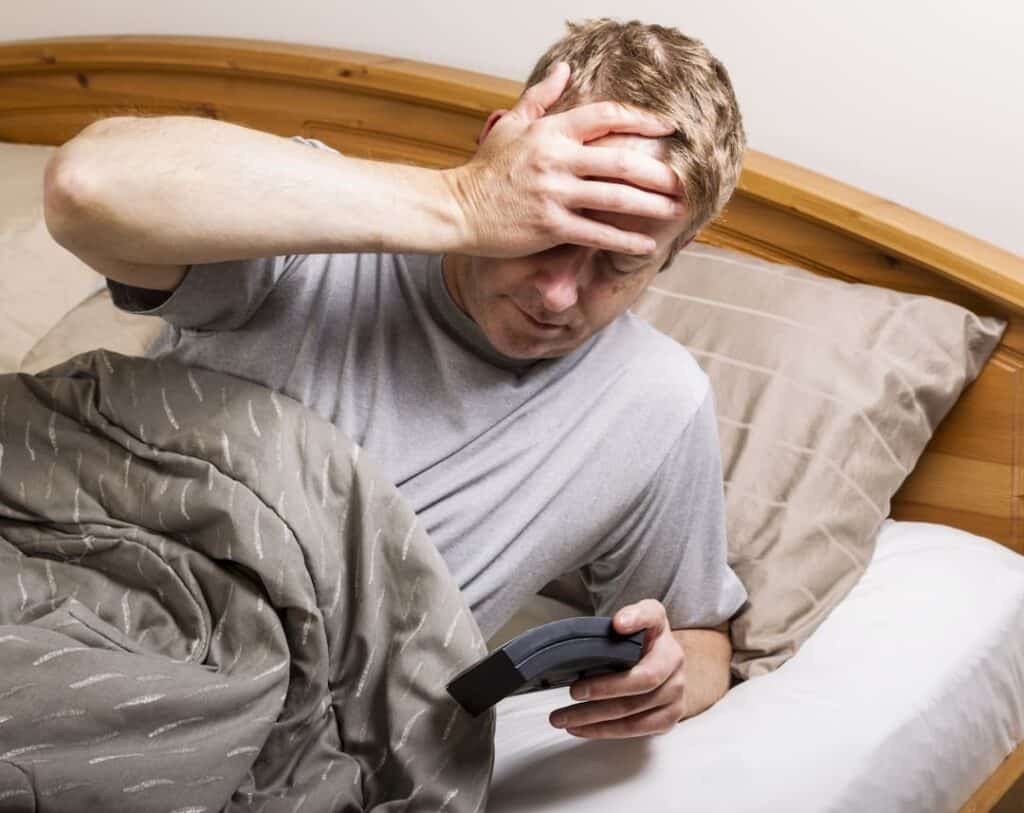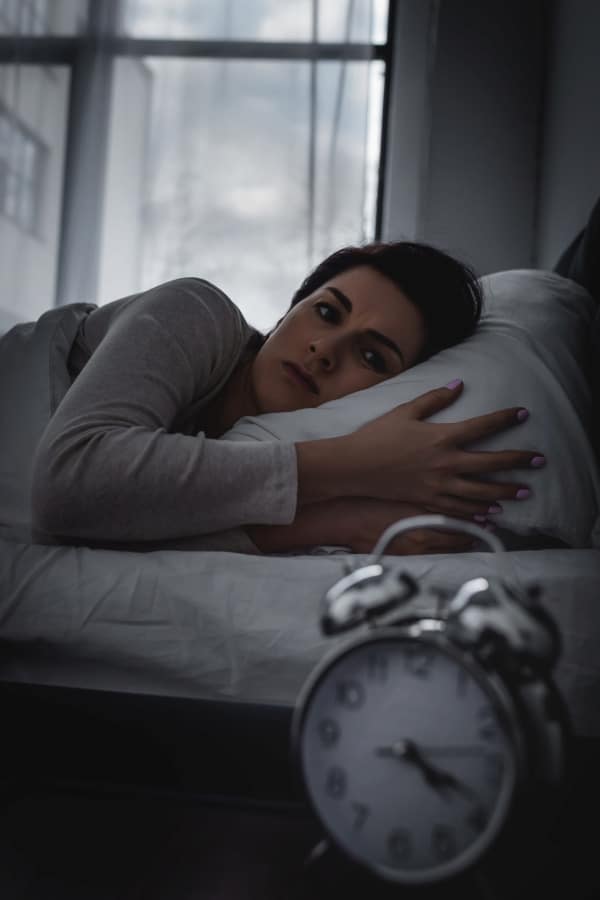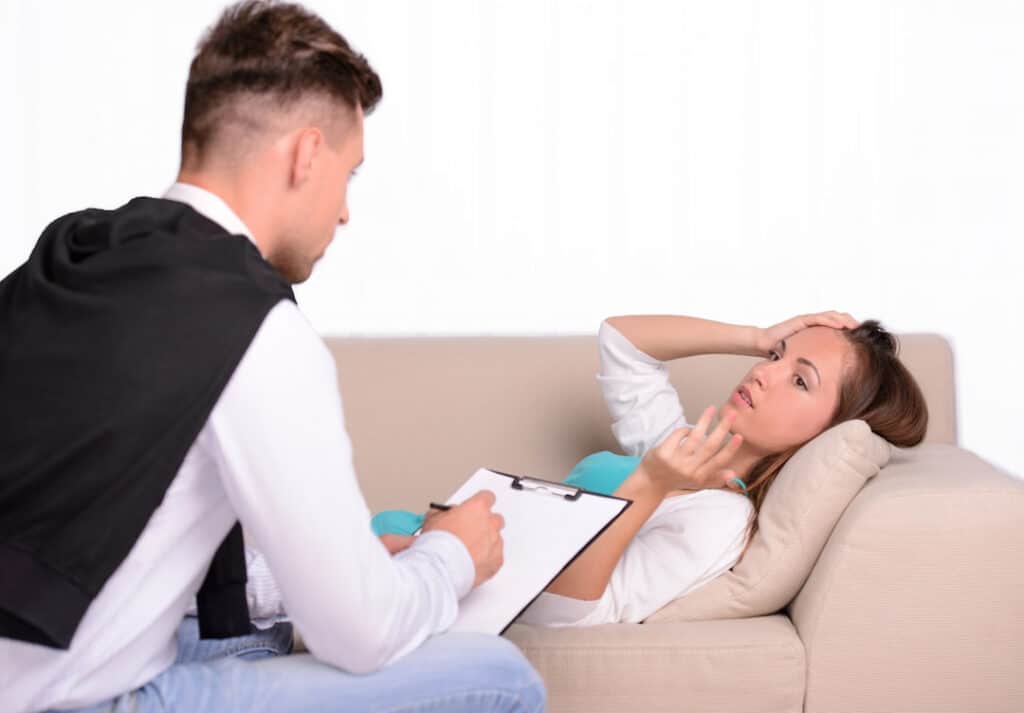Have you ever experienced a time in your life when you couldn’t get to sleep? You were tired from the day before, yet you just laid in bed, afraid of closing your eyes. Sounds have become louder or softer, your heart rate has increased, and you’re unsure why.
Maybe images from earlier that day keep replaying in your mind, keeping sleep at bay. Several hours pass and your eyes get heavier, but you can’t seem to drift off. You just lay there until it’s time to wake up. This scenario is quite common when it comes to insomnia. If this sounds like you, you might be suffering from some form of insomnia. You should know that there are ways to help you out of this, including hypnosis for insomnia. What exactly is it though?

What is Hypnosis for Insomnia?
It is a technique that hypnotizes a person to feel extremely tired, ultimately resulting in sleep. Hypnosis for insomnia is also referred to as hypnotherapy. Insomnia is a sleep disorder that causes you to have trouble sleeping or wake up from sleep earlier than desired.
People who have insomnia often wind up falling asleep during the day or falling asleep early into the evening, usually at the expense of their normal daily activities. Even though they may go to bed early, you can’t sleep due to not being tired anymore. That’s one big difference between insomnia and everyday sleep issues. There are many different types of insomnia, including acute, transient, short-term, long-term, chronic and recurrent.
Hypnosis Downloads
People who struggle with insomnia often want to know if hypnosis for insomnia provides effective treatment. Research shows that listening to hypnosis audios is also a way to follow. They involve audio recordings that will provide medical advice on how to achieve restorative sleep. The audio hypnosis can help in sleep disturbance, attaining deeper sleep, finding the root of sleep problems, and overall improvement of sleep quality.
Hypnosis Downloads help you discover how to get started on a path of good health and well-being through superior sleep patterns. The website has several audios that can help you to improve your sleep habits.
It has audio download features depending on what tickles your fancy. Audio hypnosis can help you get into a calm state, ridding you of any sleep disturbances in the process. It stands as a promising treatment, assisting you in getting healthy sleep and maintaining favorable sleep hygiene.
You can listen to the audios on your PC or through the free app for better sleep.
What Are the Symptoms?
The symptoms of chronic insomnia can vary from person to person depending on when it occurs in their lives.
· Sleeplessness
· Impaired memory and concentration
· Depression
· Anxiety
· Irritability
· Headaches
· Stomach aches or pain
· Backaches
· Loss of libido.

The good news is you that you can turn around your sleep hygiene today and rid yourself of sleeping problems. There are many helpful techniques out there, with sleep hypnotic induction or hypnotherapy work being one of them.
Hypnosis for Insomnia
Before you immediately dismiss traditional therapy as a helpful means of getting to sleep, hear us out. There are many different types of hypnosis used to treat sleep issues. One class goes deep into your unconscious mind and plays certain quiet sounds to stimulate feelings of relaxation. These sounds could include the waves crashing on the beach, rainfall or even a crackling fire. It can be effective because it’s working with your mind to give you that same relaxed state as if you were actually at that location.
Another way that hypnosis works by having someone close their eyes and listen to calming music for several minutes. While this might not be the most effective treatment, many people find that it does help them relax and get to sleep more easily.

Does Hypnosis Work for Insomnia?
Yes, hypnosis can work with insomnia and can help alongside sleep medicine. While it is not a cure for the condition, it can certainly help in improving sleep, to sleep deeper, and reduce sleep terrors and sleep disturbances.
Hypnosis Intervention Effects
Hypnosis decreases your level of stress and anxiety, which helps you sleep faster. The good news is hypnotherapy has many other health benefits besides helping with insomnia. Hypnosis can help you quit smoking, overcome fears or phobias, increase self-esteem and confidence, decrease pain intensity (and sometimes eliminate pain), reduce labour time, spotting an underlying health condition, and even help with irritable bowel syndrome.
You might be wondering how this is possible, but it’s all thanks to the subconscious mind. Your conscious mind might know fear isn’t real, but your unconscious mind doesn’t. Because of this, you can be hypnotized and told that a chair isn’t holding you up or that there isn’t a dog barking in the other room. This process is called dissociation, and it turns off your subconscious mind to stimuli like pain, fear and all sorts of negative emotions.
Self- Hypnosis for Sleep: What It Is & How to Do It

You can achieve hypnosis by yourself with the proper directions. You can use self-hypnosis to put yourself into a deep state of relaxation and eventually sleep without getting someone else involved (see ‘Self-Hypnosis for Deep Sleep‘). There are many different websites out there that offer help with this process, but here is a straightforward way you can do it (if you’re looking for more information on how to do this, you can always Google it):
Step 1: Find a quiet place where you won’t be distracted and lie down.
Step 2: Relax your body as much as possible by taking deep breaths and focusing on each muscle group (starting with your toes and working your way up) until they feel limp and relaxed.
Step 3: When you feel relaxed, tell yourself that sleep is coming. Say it over and over again.
Step 4: Continue to relax your body as much as possible. Breathe deeply and slowly in through your nose and out through your mouth. Focus on your breathing to help you relax even more.
This step can be done as many times as needed. You might need to do it a few days before you fall asleep every night, but eventually, the deep breathing and relaxation process will become routine, and sleep will come quickly.
If this self-hypnosis technique doesn’t work for you, there are plenty of other options. You can always consult with your doctor to see if a sleep study is needed to determine the root of your problem. There are also clinical sleep medicine available, but keep in mind that they often come with side effects. Finally, talk therapy can help you learn how to ease stress and anxiety so you can finally get a good night’s rest.
Other Conditions that Can Benefit From Sleep Hypnosis
While it is not a cure for insomnia, hypnosis can be an effective treatment for other conditions. If you suffer from headaches, for instance, you can learn to control the pain through self-hypnosis. Hypnotherapy has also been used to treat depression and anxiety disorders, even in children who have trouble focusing or sleeping. Others include:
· Multiple sclerosis patients
· PTSD (post-traumatic stress disorder)
· Neurosis and hysteria
· Anxiety attacks
· Cancer patients
· Postmenopause symptoms
· Tobacco/alcohol/caffeine addiction
· Asthma
Many of these conditions can be treated by hypnotherapists, but it is always best to talk with your doctor before trying any new therapies.

How Many Hypnosis Sessions are Needed for Insomnia?
The time needed for hypnosis sessions vary according to how severe your insomnia is. Some people only need one session, while others may need more. You can expect to have an average of three hypnotherapy sessions before you begin sleeping normally again. If you are struggling with chronic sleep issues, then schedule an appointment with a licensed medical professional. Treating insomnia is a serious matter, and you will need to see a professional get the most effective treatment plan.
Can Hypnosis Help You Sleep?
Hypnosis does not cause sleep, and it will not completely get rid of insomnia. However, it is a powerful tool that you can use to become more relaxed. When you are in this state, your brain waves slow down, and you enter into the “alpha” level. It is the state where most people fall asleep. By inducing hypnosis, you are helping your brain get closer to that state.
While hypnotherapy is not meant to be a cure all for insomnia or any other conditions (such as stress or anxiety disorders), it can certainly help you improve sleep quality at night. The more relaxed the mind and body are, the easier it becomes to fall asleep.

Does Sleep Hypnosis Have any Risks?
Hypnosis is considered entirely safe, but it is always advisable to speak with your doctor before trying self-hypnosis. It’s also essential to find a qualified hypnotherapist so they can adequately put you into the correct trance like state. It ensures the safety and effectiveness of the treatment.
When you are in hypnosis, you temporarily lose control over your subconscious mind. A skilled practitioner can guide this process and stop it at any time if you want to end the session. However, even an experienced hypnotist cannot make anyone do anything against their will.
Conclusion
Hypnosis for insomnia is a self-hypnosis technique that focuses on deep breathing and relaxation to help you get a good night’s sleep. It can turn around your sleep outcomes, inducing better sleep patterns. Furthermore, it proves helpful to other mental health conditions. Ensure to go through a trusted healthcare provider before kicking off your hypnosis journey.

